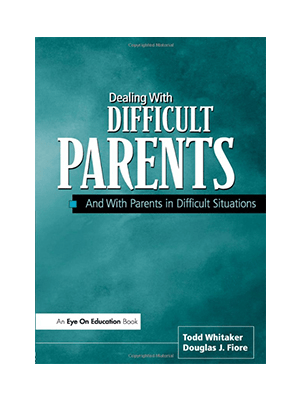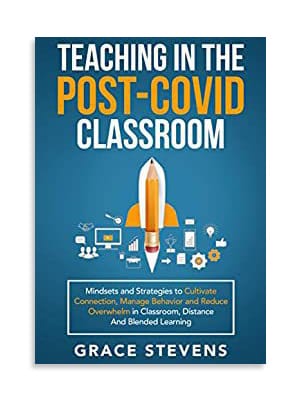“Done is better than perfect.” – Sheryl Sandberg
When I was a young basketball coach, I had a perfectionist mindset. I was 24, a brand new varsity coach, and I was going to create a basketball program that would become a powerhouse in Illinois.
That first year, we won 6 games. We were 6-20. The hall of fame would require greater success before they’d be calling my name.
We had some tough breaks along the way, and I learned a lot from that first group. I learned that you can’t set unrealistic expectations (or unrealistic goals), for yourself or your team.
Like many new coaches, I spent an inordinate time studying film on my team, scouting other teams and learning new plays and drills. I had to make sure I was always putting forth my best effort.
It was exhausting.
The problem with unreasonable demands is that you’ll never be happy, and you’ll constantly find yourself falling short of your high standards and open to the potential critics.
I was young, and hadn’t realized yet that there was a difference between expecting excellence and perfection out of myself as a coach.
I was burning the candle of both ends to help my team reach their full potential, all while setting an unachievable standard for excellence. I needed a new direction, to learn there was no such thing as perfect when dealing with humans, and that spending that much time on one thing was unhealthy.
The next year, I did some different things, starting with setting achievable goals for each game. I spent each practice, each year, looking for continuous improvement. And every year we got a little better. And along the way I found more personal satisfaction, knowing that I had started to build something the right way.
I walked away eventually, at a point where I’d built the program to the cusp of becoming a perennial 20 win team year after year.
Now, my personal growth has shifted to my business side hustles, which allow me to spend more time with my family.
I truly believe those first years were harder than they needed to be, but they also set me up to be a better team member for my new ventures.
So to anyone out there who suffers from being their own worst critic, let’s take a look at how a recovering perfectionist was able to take the lessons from coaching and apply them to the business world (while still keeping my day job as a teacher).
Thought Process
When you are first starting a business (or lesson plan, or anything else), you want to make sure you are doing everything right. Most people believe everything has to be perfect. It doesn’t. You truly need a growth mindset, or the end result will be that you never get started. It will be that dream that never came true.
When I was coaching, I believed if I didn’t do things right the first time, there’d be a high cost for failure. So I spent tons of time examining every angle and method I could get my hands on before I started.
After 10 years of coaching, I’d learned the highest cost was not taking that first step and just beginning the journey.
So I used that new mindset when I stepped out of coaching and tried something new.
That’s how this guy, while exploring some creative pursuits (like teaching a graduate class to 32 teachers when I had zero experience) went from constantly worrying about time limits and being one of those perfection strivers to someone who jumped in with both feet and started a business.
I was approached by one of my students (who was ironically about 9 years older than me), who I kind of knew, about going into business together.
That’s how Nick Pezzuto and I started Midwest Teachers Institute, with a little creative thinking and just enough ignorance to believe we could pull this off. We 100 percent knew we weren’t perfect, but we also believed that none of the competition was either.
A great example of this was the first thing most people see in your business.
I’ll be honest, and this is no offense to my business partner at MTI, but our first website was not good.
We had zero experience building a site, and there was much less drop and drag than there is now.
It looked like 2 amateurs put it together in a few days (although Nick did most of the work to be honest), because that’s what happened. But we checked off an achievement goal, we had our first website. Now we could focus on learning how to improve it.
You see, if we were perfectionists, we would have had to wait to start getting the word out until we had everything at an excellent level.
Instead, we launched an imperfect product and we started making money.
We made money that allowed us to reinvest in the company, so the next time someone came to our site it was a better experience.
Here’s the catch, you’ll never be perfect, but your product doesn’t have to be perfect. The market usually demands your product either be cheaper or provided at an excellent level.
What it will require is for you to put in consistent effort, constantly looking for new ways to promote your product and provide the services you offer.
But you can’t do that if you haven’t launched yet. The pursuit of excellence keeps you from starting, keeping your great idea just an idea.
Pareto Principle
Originally this concept came from Italy. The idea was that 80% of Italy’s wealth came from 20% of the population. (Some things never change).
Today it usually refers to the idea that 80% of the results for your business come from 20% of your actions.
Think about that. Many people fail to start their business because they are afraid they will fail. In truth, you don’t need your entire business to be perfect, you need a small portion of it to be excellent.
Most of your profits will come from a small portion of your efforts.
I know that after I’ve written thousands of blog and social media posts, most of my profits will come from only a few of them that have impacted my audience the most.
If I tried to make every post perfect, I’d never get in the quantity required to reach my desired goal.
At MTI, we’ve thrown hundreds of ideas at the wall, knowing that most of them will fail.
We didn’t let fear of failure stop us from taking chances. And many of our plans failed (or were later adapted to greater excellence)!
Some notable failures:
- We took out a $5000 advertisement for NY teachers in their union magazine (zero customers)
- We made a deal to develop courses with a huge PD provider based in the southeast (again a big fat zero)
- We paid thousands of dollars to advertise on a very prominent podcast for teachers (very little return on investment)
- We’ve got plenty more, but those are the 3 that hurt the most so far
The lessons we learned in each of those instances has helped us move forward.
Because we don’t have to be right all the time, we just have to get it right 20% of the time.
And that always seems much more doable.
Silence the Voices
Here’s the lesson: if you want better results, you’ll have to silence the negative self-talk and get rid of your perfectionist tendencies.
Your chances of success are directly related to the overall output you have, and you simply can’t take many chances when you are trying to be perfect.
You’ll be bogged down, and that will lead to inaction. Learning to look for excellent business ideas will give you the peace of heart to know that you are moving forward, getting closer to your financial or professional goals.
The biggest issue most people have, the reason they feel the need to be a perfectionist, is that they believe they must have all the answers or feel like a pretender.
News flash, even the experts have things they don’t know. They’re not experts because they are perfect, they’re experts because they know more than the majority of people.
They’re excellent at what they do, but even they keep learning and looking for new ideas.
Whatever you are doing, you probably know more than quite a few others about that subject. That’s the opportunity. And if you like what you are doing, you’ll spend more time improving yourself.
Final Thoughts
The best way to think of the difference between excellence and perfection is that one is achievable, the other isn’t.
Perfectionism in general is the fear of failure. If everything isn’t perfect, people will think it’s not worth purchasing.
Our perfectionist tendencies often come from a deep rooted fear that we aren’t good enough. We fear that someone will see our flaws and realize that we are an imposter.
The pursuit of perfection leads to the high cost of failure. You’ll never be perfect, and you’ll probably quit since you are always working towards an unachievable goal.
Excellence is less about the end point and more about the journey. The pursuit of excellence allows us to get started, because we can’t reach our lofty goals without beginning the journey.
I can’t think of many times in my business where perfection was ever obtained. For each company, our logo has gone through multiple designs.
And we’re not 100% done tweaking those. And that’s just a logo…
We’re not alone. Do a little research on big companies in the world that have been around for awhile, and you’ll see many iterations of their logo, jingle, etc.
We thought in 2010 we had the perfect idea for a company, hiring individual teachers to be tutors on the side. That idea, which was sure to crash and burn on logistics alone, led to more discussions about what teachers really needed.
That in turn led to a discussion about graduate classes that were more affordable. This idea made a lot of sense, we didn’t have to connect as many moving parts. And it could be more passive.
Our first website sucked, it’s so much better now that I’d dare call it excellent. But we’re not done, we’re always looking to improve.
I wasn’t a perfect coach when I retired to spend time with my family and pursue my side hustle, but I believe I was on the path of excellence.
You aren’t perfect. You never will be. So accept it and get started, whatever it is you’re waiting to begin. Because all you are doing is wasting your most precious resource, time.
If you have any questions, or want to just talk about your own struggles with being a perfectionist, I’m always willing to listen and contribute what I can.
The best way to reach me is either of the methods below.
Good luck everyone, and keep striving for excellence!

























